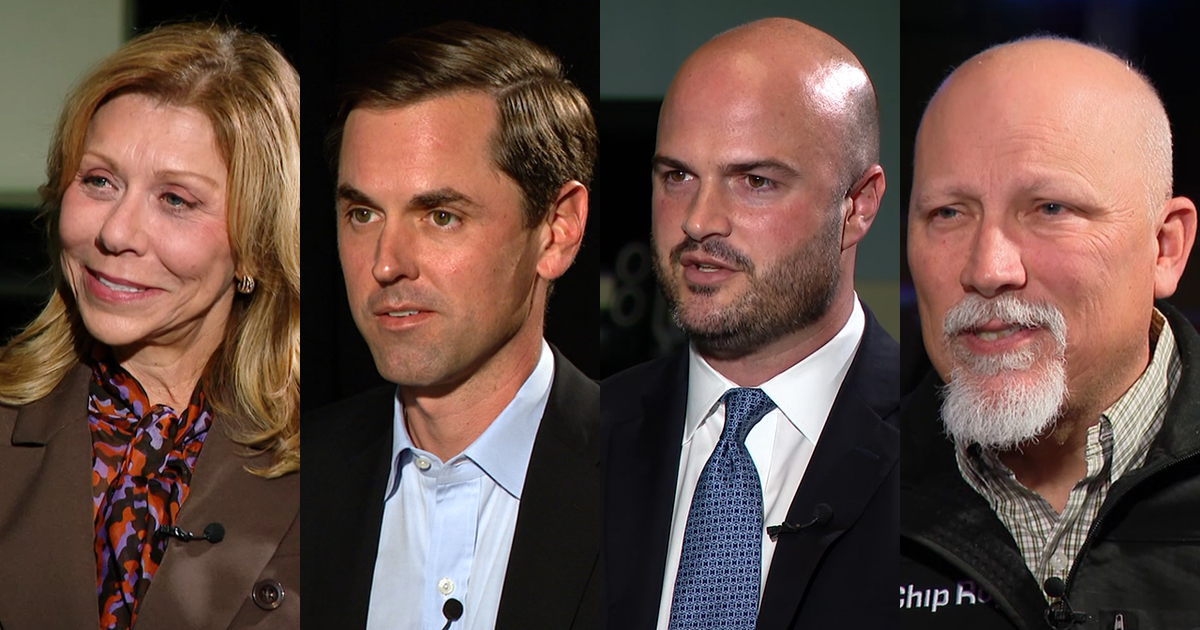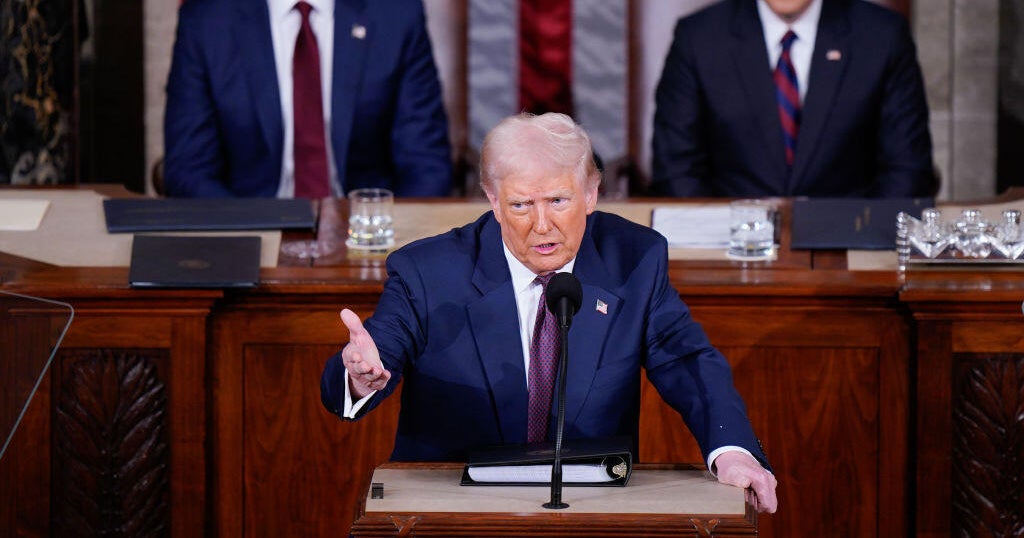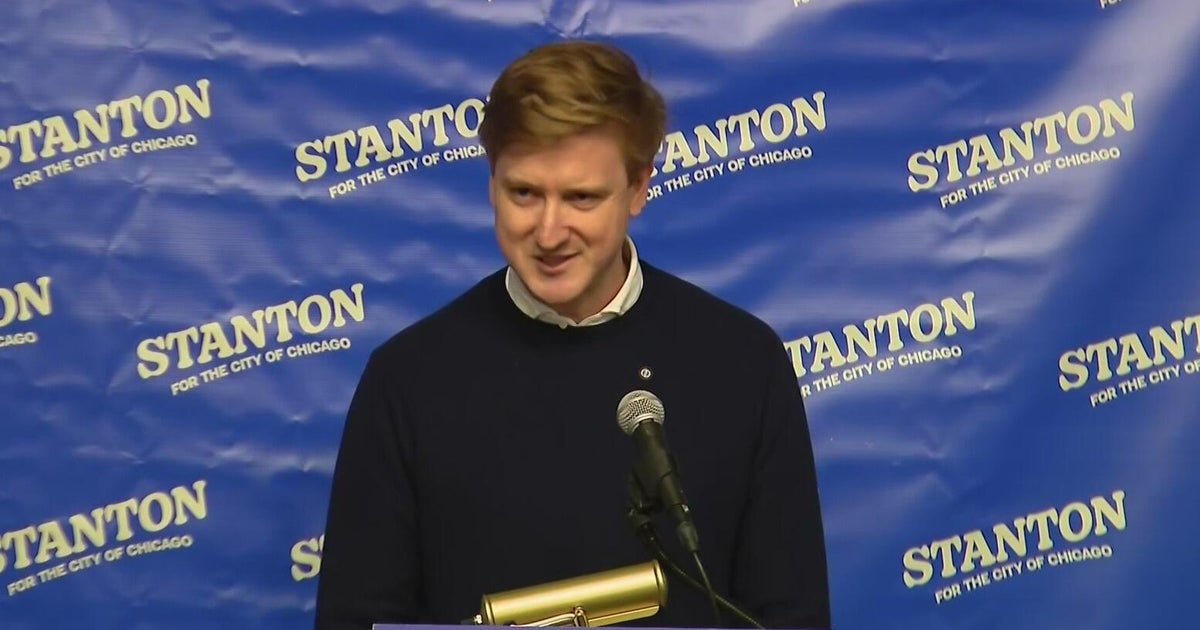Big GOP Donors Leaning To Rauner For 2014
CHICAGO (AP) — Anxious to clear a path back to the governor's office, some of the Illinois Republican party's deepest-pocketed donors are abandoning candidates they previously supported with five- and six-figure donations and directing their money to the only political newcomer in the race — venture capitalist Bruce Rauner.
Rauner is a billionaire who — at least financially speaking — doesn't need the help, and money doesn't always decide Illinois primary races. But if the pattern holds, it could make it difficult for his opponents — state Sens. Bill Brady and Kirk Dillard and Treasurer Dan Rutherford — to fight back with television advertising, mailers or fly-around events, particularly in crucial weeks before the March primary election.
"That's going to be their problem, I believe," said Ron Gidwitz, a former Illinois Republican party chairman and gubernatorial candidate who's serving as Rauner's finance chairman.
Four years ago, Gidwitz held the same position for the Dillard campaign and contributed more than $300,000 to Dillard in donations and loans.
The wealthy businessman is among a handful of heavy-hitting GOP fundraisers who say they grew frustrated after a razor-thin loss in the 2010 governor's race and a thumping at the polls in 2012 and decided it was time to try something different. They wanted a pro-business candidate who could win statewide and who hadn't been part of the Springfield establishment. And they wanted the other would-be candidates to sit out the election so the party could avoid a potentially divisive and costly primary.
"There's a certain time in which (known candidates) have to say 'I've tried often enough, it's time to step back,'" said Elizabeth Christie, a retired executive and one of the biggest donors to the state GOP who gave $20,000 to Brady's 2010 bid and is now a chairwoman of Rauner's campaign. "I believe a lot of donors are saying it's time ... and I think you're seeing that in the numbers."
In the second quarter of 2013, Rauner raised about $915,000 — more than double his closest primary rival. Rutherford brought in about $433,000, while Dillard and Brady raised about $293,000 and $61,000 respectively.
Rauner's numbers were boosted by a who's who of GOP donors — including at least half of more than a dozen individuals who regularly help bankroll GOP campaigns in Illinois, according to an Associated Press review of campaign finance data. The group includes Citadel CEO Ken Griffin and hedge fund manager Anne Dias Griffin — who gave a combined $450,000 to Brady's failed 2010 gubernatorial bid — and a trio of contributors who accounted for almost one-fifth of the money Dillard received during that year's primary.
Gidwitz said the effort isn't formally coordinated, but many of the donors communicate frequently and run in the same circles. Christie said many of them know Rauner personally.
The big donor money doesn't assure victory. Rauner has the lowest name recognition of any candidate, and is already trying to counter that by spending millions on television advertising.
In Illinois, as in other states, voters are at times turned off by big spenders. In 2010, the candidates who raised the most money lost their respective primaries. Gidwitz lost the 2006 primary despite loaning himself millions and raising large sums from many of the connections Rauner is tapping now.
"History has just proven you can't buy voters in a primary. They look for some track record and someone they're comfortable with," said Brady, the Bloomington lawmaker who lost to Gov. Pat Quinn by less than 1 percent of 3.6 million votes in 2010.
A new law imposing contribution limits was supposed to curb the importance of money in Illinois elections. But there's a caveat: if any candidate donates $250,000 to his or her own campaign, the limits come off for all candidates in the race. So far, Rauner has put $249,000 into his own war chest. If and when he doles out the final $1,000 his supporters could begin pouring even more cash into his coffers.
Rauner's rivals say they're not concerned. Rutherford finished the second quarter with the most cash on hand and has no debt. He's received almost 10 times more in donations of under $150 than any other candidate — an indication of his strong grassroots support, he said.
"If someone writes you a $5,000 check, that's very nice," said the former state representative from Chenoa. "If someone gives you $50, you know they're going to vote for you."
Brady said he's "not at all" worried about raising his own money to compete in 2014. "I got nearly 1.8 million votes in the last election, so we have a strong base to build on," he said.
Dillard campaign adviser Chris Dudley said it's too early to tell how fundraising could shape up. Dillard officially joined the race in July, she noted, and summer is typically a slow season in political fundraising. She said he can rely on strong support in DuPage County, often critical in statewide races and which Dillard has represented for 20 years.
"It's a significant county for both votes and money," Dudley said.
One veteran Democrat stressed the risk of being seen as the moneyed candidate.
"There's a resentment about somebody trying to buy (victory) in our state," said U.S. Sen. Dick Durbin, who's held public office in Illinois for three decades. "For all his money, (Rauner) is riding the tiger. He could get thrown and devoured if he's not careful."
(© 2013by STATS LLC and Associated Press. Any commercial use or distribution without the express written consent of STATS LLC and Associated Press is strictly prohibited.)







